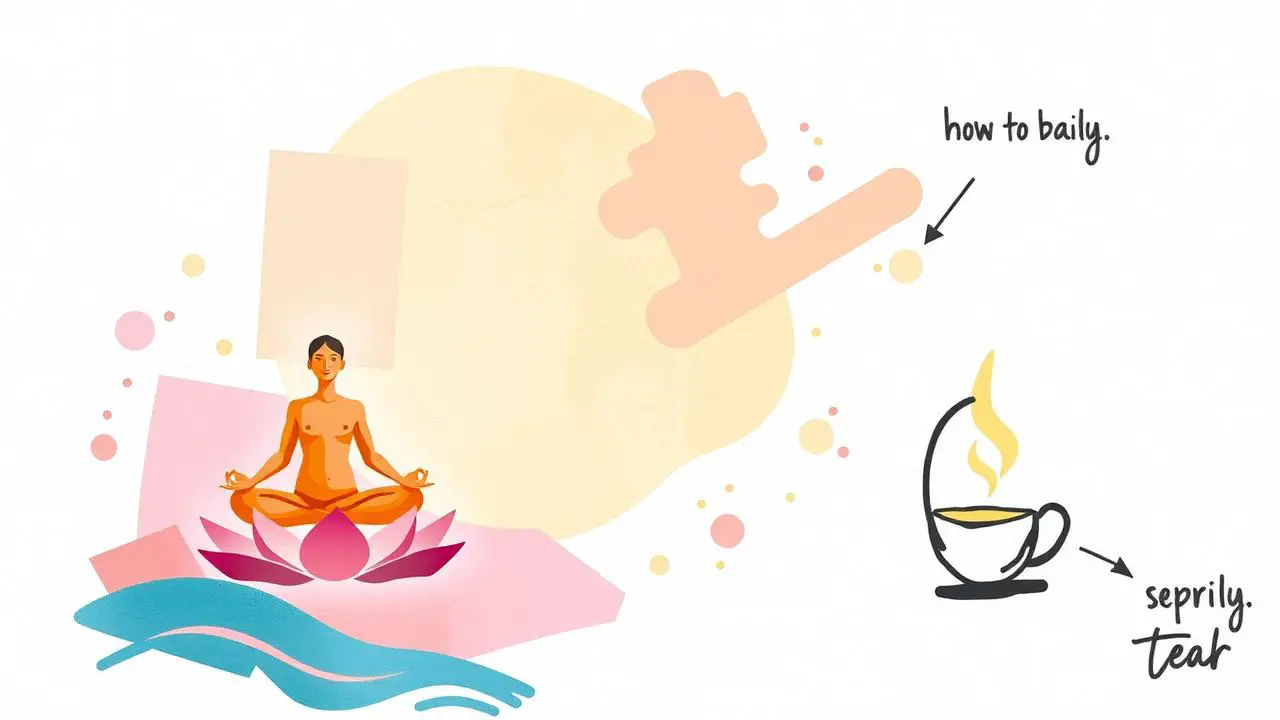You’ve probably heard a lot about mindfulness lately. It seems like everyone from celebrities to your co-workers are talking about it as the latest trend in wellness. But despite its growing popularity, there are still some people who are adamantly against it. Maybe you’ve even encountered someone who scoffs at the idea of mindfulness or dismisses it as a passing fad.
So, what’s the deal? Why are some people so against mindfulness?
Some people may be against mindfulness because they don’t understand it or see it as a “trend” or “fad.” Others may feel uncomfortable with the idea of being present in the moment or may have negative experiences with meditation or mindfulness practices. Additionally, some individuals may simply prefer different forms of stress relief or relaxation techniques.
It’s important to acknowledge that not everyone understands what mindfulness actually is. Some people see it as a vague and fluffy concept that doesn’t have any real substance. Others may associate it with specific religions or spiritual practices that they don’t agree with.
Additionally, there are concerns about the commercialization of mindfulness and how it can be used to increase productivity in the workplace. But perhaps the biggest reason why some people resist mindfulness is fear – fear of losing control, fear of letting go, and fear of change.
In this article, we’ll explore the various reasons why some people are against mindfulness and examine whether their concerns are valid or not.
Misunderstanding of Mindfulness
Many misunderstand mindfulness, believing it to be a fluffy or mystical concept that lacks practicality in daily life. However, mindfulness is simply a practice of being present in the moment and paying attention to one’s thoughts and surroundings without judgment.
Common misconceptions include the idea that mindfulness is only for yogis or monks, or that it requires a significant amount of time or effort to practice. In reality, mindfulness can be incorporated into everyday activities such as walking, eating, or even brushing your teeth.
The benefits of mindfulness extend far beyond stress reduction. Practicing mindfulness has been shown to improve focus, increase emotional regulation, and even boost the immune system. It can also lead to greater self-awareness and a deeper understanding of one’s values and priorities.
Despite these benefits, there are some who are resistant to mindfulness due to perceived religious or spiritual associations. However, mindfulness can be practiced in a secular way and does not require any specific beliefs or affiliations.
Perceived Religious or Spiritual Associations
The association of mindfulness with specific religions or spiritual practices can deter individuals from incorporating it into their daily routine. There is a religious stigma attached to mindfulness, which makes people hesitant to try it. Some may view it as a Buddhist practice, while others may associate it with certain New Age beliefs. The cultural bias against mindfulness is not limited to any particular region or religion, and it can be seen across different parts of the world.
However, it’s important to note that mindfulness is not a religious practice, nor does it require any specific spiritual beliefs. It’s simply a technique that can be used to improve one’s mental and emotional well-being. By focusing on the present moment and becoming more aware of one’s thoughts and emotions, it can lead to a greater sense of calm and clarity.
So, while the religious stigma may exist, it shouldn’t deter anyone from exploring the benefits of mindfulness.
This misconception is just one of the reasons why some people are so against mindfulness. Another reason is that it’s viewed as a passing trend, something that’ll lose its popularity in the coming years. However, this is far from the truth, as mindfulness has been practiced for centuries, and its benefits have been scientifically proven.
So, it’s worth exploring and incorporating into your daily routine, regardless of any perceived religious or spiritual associations.
Viewed as a Passing Trend
Don’t be fooled by the belief that mindfulness is just a fleeting trend. Despite its recent surge in popularity, mindfulness has been practiced for centuries across different cultures and religions. In fact, it has roots in ancient Buddhist meditation practices.
The reason why mindfulness has gained traction in recent years is because science has confirmed its benefits, including reduced stress, improved mental clarity, and increased emotional regulation.
Unfortunately, misconceptions about mindfulness still persist. Some people view it as a passing fad with no real substance, while others have simply not been exposed to it. However, the reality is that mindfulness has been around for a long time and has stood the test of time. It is a valuable tool for anyone looking to improve their well-being.
With that said, concerns about the commercialization of mindfulness are valid and will be explored in the next section.
Concerns about Commercialization
With mindfulness becoming a popular commodity, it’s important to remember the adage ‘you can’t buy inner peace.’ There are concerns about the commercialization of mindfulness and its ethical implications. Here are some points to consider:
-
The commodification of mindfulness can lead to a focus on profits rather than the well-being of individuals.
-
The impact on the mental health profession is also a concern. Mindfulness is often used as a complementary therapy for mental health conditions, but there’s a risk that it may be seen as a quick fix or alternative to evidence-based treatments.
-
Mindfulness is rooted in ancient practices and traditions, and some argue that it should not be reduced to a trendy product.
-
The effectiveness of mindfulness can also be impacted by the commercialization of it. When mindfulness is used solely for profit, the authenticity of the practice can be lost, and the benefits may not be as significant.
It’s important to consider the potential consequences of the commercialization of mindfulness and to approach it with caution. However, this doesn’t mean that mindfulness can’t be used as a tool for personal growth and well-being. In fact, the potential for mindfulness to be used for productivity and success is a topic worth exploring.
Potential for Mindfulness to be Used for Productivity
Let’s explore how mindfulness can be utilized as a tool for boosting productivity and achieving success. Mindfulness isn’t just about being present in the moment, it can also enhance creativity and reduce stress.
By practicing mindfulness, you can train your brain to focus on the task at hand, which can lead to increased productivity and efficiency. Mindfulness can also help you tap into your creative side, allowing you to come up with new and innovative ideas.
In addition to boosting productivity and creativity, mindfulness can also be used as a tool for stress relief. When you’re feeling overwhelmed or anxious, taking a few minutes to practice mindfulness can help calm your mind and reduce stress levels.
By focusing on your breath and being present in the moment, you can let go of worries and anxieties, allowing you to approach tasks with a clear and focused mind. However, some people are still hesitant to embrace mindfulness, fearing that it may lead to a loss of control or a need to let go.
Fear of Losing Control or Letting Go
You might have noticed that some individuals are hesitant to try mindfulness practices. One reason for this is due to control issues and trust concerns. Mindfulness requires you to let go of the need to control everything around you and trust yourself to handle whatever comes your way. For those who struggle with control issues, this can be extremely uncomfortable and even scary.
They may fear losing their sense of control or worrying that their emotions will spiral out of control. This fear of vulnerability and discomfort with emotions can prevent them from even trying mindfulness in the first place. However, it’s important to remember that mindfulness is not about losing control but rather gaining clarity and insight.
It’s about being present in the moment and acknowledging your thoughts and emotions without judgment. By becoming more aware of your thoughts and emotions, you can actually gain more control over them in the long run. Mindfulness can help you develop a deeper sense of self-awareness and emotional intelligence, which can be incredibly empowering.
So, if you find yourself hesitant to try mindfulness due to control issues or trust concerns, remember that it’s okay to feel uncomfortable at first. But with practice and patience, you may find that mindfulness can actually help you gain more control over your thoughts and emotions.
As you move forward in your mindfulness journey, it’s important to acknowledge that change can be difficult. In the next section, we’ll explore the concept of resistance to change and how it can impact your mindfulness practice.
Resistance to Change
Don’t let your fear of change hold you back from fully embracing mindfulness and all the benefits it can bring to your life. It’s understandable to feel uneasy about stepping out of your comfort zone and embracing something new, but that fear of uncertainty can be limiting.
Here are four reasons why resistance to change may be holding you back from fully embracing mindfulness:
-
Fear of the unknown: When you’re used to the familiar, anything new can be scary. Mindfulness may seem like uncharted territory, but it’s important to remember that it’s a practice that has been around for centuries.
-
Comfort in familiarity: It’s easy to fall into a routine and stick with what you know. Mindfulness may require you to break free from those patterns and embrace something different.
-
Resistance to change: Change is hard. It requires effort, time, and commitment. But the benefits of mindfulness are worth it.
-
Lack of understanding: If you don’t fully understand what mindfulness is or how it can benefit your life, it’s easy to resist it. Take the time to learn more about this practice and how it can help you live a more peaceful, fulfilling life.
Embracing mindfulness can be scary, but it’s important to remember that change is often necessary for growth.
In the next section, we’ll explore the lack of understanding of the benefits of mindfulness and how it may be contributing to resistance.
Lack of Understanding of the Benefits of Mindfulness
It’s amazing how some individuals still fail to grasp the immense positive impact that mindfulness can have on their lives. Perhaps it’s due to a lack of understanding of the benefits of mindfulness. Many people overlook the benefits of mindfulness because of societal stigma surrounding it. They perceive it as a trend or a fad without realizing the depth and power of its practices.
To better understand the benefits of mindfulness, let’s take a look at the table below:
| Benefit | Explanation |
|---|---|
| Reduces stress | Mindfulness practice strengthens your ability to regulate emotions and manage stress. By learning to pay attention to the present moment, you become more aware of your thoughts and feelings, which can help reduce stress. |
| Improves concentration | Mindfulness practice can enhance your ability to concentrate and focus. By training your mind to stay in the present moment, you can learn to reduce distractions and improve productivity. |
| Enhances well-being | Mindfulness can improve your overall sense of well-being. By cultivating a more positive outlook on life and developing a greater sense of self-awareness, you can experience more happiness and fulfillment. |
By understanding the benefits of mindfulness, you can begin to appreciate the positive impact it can have on your life. Don’t let societal stigma prevent you from experiencing the many benefits of mindfulness. Give it a chance and see how it can transform your life for the better.
Is Resistance to Self-Improvement Related to Resistance to Mindfulness?
Resistance to self-improvement often stems from an underlying aversion to confronting discomfort—a mirror to the reluctance toward mindfulness practices. For many, the reasons for avoiding self-improvement work intertwine with fear of vulnerability and the daunting task of facing one’s own imperfections head-on.
Conclusion
So, why are some people so against mindfulness? It could be due to a misunderstanding of what mindfulness actually is, or perhaps a fear of losing control or letting go.
Others may view it as a passing trend or have concerns about its commercialization. Some may even associate it with religion or spirituality, which can be a turn-off for those who don’t identify with those beliefs.
But despite these reservations, the benefits of mindfulness are undeniable. It can help reduce stress, improve focus and concentration, and even lead to greater happiness and well-being.
In fact, studies have shown that mindfulness can increase gray matter in the brain, which is associated with improved cognitive function and emotional regulation.
Think of mindfulness like a garden. At first, it may seem like a lot of work to tend to the soil, plant the seeds, and water them regularly. But with time and effort, the garden begins to flourish and bloom, providing a beautiful and peaceful space to enjoy.
Similarly, practicing mindfulness may require some initial effort and discomfort, but the rewards are worth it in the end. So don’t be afraid to give it a try and see how it can positively impact your life.




